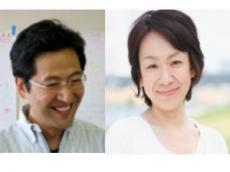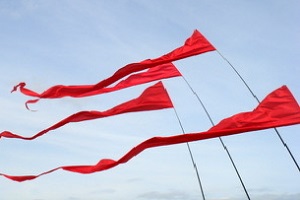The Wind from the East by Takeshi Shimamura and Nao Konishi
In the 10 years-plus since coaching was first introduced in Japan, the field has delivered to people many tools and much wisdom for human development. As coaches, we are aware, too, of certain elements inherent to Japanese culture that when applied to coaching serve to enrich the coaching experience for both clients and coaches. Three such concepts – kokorozashi, ma, and rei – will be introduced here.
Kokorozashi
This concept refers to one's desire to make a contribution in the world. It answers the question, 'What are we trying to accomplish through coaching?'. We believe that the purpose of coaching is to empower clients' kokorozashi.
The human longing to make a difference is universal, and kokorozashi specifically points to aspirations that stem from the force of our integrity. What we have the will to do, we do not for the sake of satisfying our ego, but for the sake of answering the call of something beyond ourselves. Thus kokorozashi refers to the union of our truest selves with the will to give our lives meaning for a larger purpose.
When our kokorozashi is in line with our values, we can act consistently and boldly, sustaining our efforts no matter how big the challenge and no matter the short-term results. A person acting out of awareness of his kokorozashi has the power to impact families, communities, and organizations, so that these places become energized, their members feel fulfilled, and both perform at their best.The coach's role is to explore their client's kokorozashi and empower it to lift the clients into the next stage of human development. Asking questions like 'What kind of society do you want to leave for your children?' or 'What something great are you called to?' will help clients and coaches access their kokorozashi.
Ma
That connection to something beyond self that is characteristic of kokorozashi may also be found in what is known as ma. Ma is the space between individuals and the space that surrounds us. Ma is something palpable that we can feel once we are aware of its existence. Normally we think of ourselves and others as being separate individuals. We may be in the same space, but we are there separately, we think, each with our own personal boundary.
Now imagine a space in which there are no boundaries among people. Here in the ma, our separateness melts into oneness, so that we each experience ourselves as a part of the whole. Everyone present is directly involved in the ma space, feeling a sense of unity beyond their own selves. By staying in the ma space with their clients, coaches make it easier for clients to open themselves to that bigger, unifying presence. From that place, clients can access and explore their kokorozashi.
Rei
It is with a sense of profound respect for and appreciation of another person’s presence that we approach the experience of coaching our client and sitting together in the ma. The rei, or the act of bowing in Japanese style by bending forward from the waist with one’s head pointing downward, is the body’s expression of this mindset. With this action, the coach commits to doing his or her best in the relationship that is about to begin.
Embodying the rei mindset is effective with clients. Sensing both the coach’s commitment and the coach’s real respect for and appreciation of their presence, clients become willing to open up, to explore their natural selves, to unfold possibilities, and to take bold actions without hesitation.
Our wish is for more and more people to live with kokorozashi, ma, and rei, so that human relationships evolve to the next stage. Coaching is the critical catalyst for this. Through coaching the world can become a place where everyone lives into their potential and at their best, fulfilling the calling of their own precious life.
Takeshi Shimamura is president of CTI Japan, an international partner of the Coaches Training Institute. His mission is to develop a structure for people to play active roles in society. With such passion, he leads CTI Japan which has trained 4,000 coaches since 2000.
Nao Konishi is an independent personal coach.Through her former work in a global company,she fostered insights into human understanding and contributed to regional and global projects in that cross-cultural organization. She values the diversity of people, animals, and nature as a natural expression of the universe.




